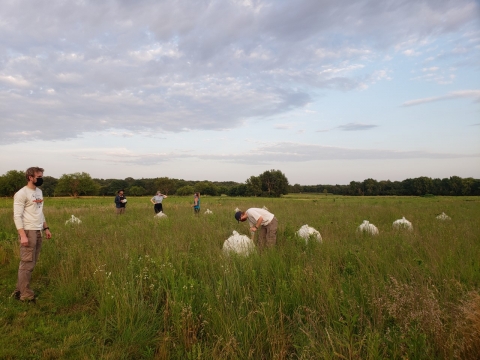You are here
Benefits of a Large-Scale Prairie Experiment (In Progress)
Recent Project Updates
-
3/7/2025The Land and Water team met on March 7th, 2025, at 9 am on Teams this month. In this week's meeting, the team discussed prairie strips, sustainable water usage on campus, milkweed plantings for pollinators, and activities to participate in this...
-
9/27/2024The Land and Water iCAP Team had their monthly meeting on September 27th, 2024 at 9 am on Teams. Attached are the minutes and the notes from the meeting.
Project Family
-
Sustainable Landscapes Plan
- Bee Campus USA
- Benefits of a Large-Scale Prairie Experiment
- Bird Safety
- Campus Landscape Master Plan (CLMP)
- Committee on Natural Areas
- Implement Resilient Landscape Strategy
- Incorporate Sustainability Principles into Campus Master Plan [ARCHIVED]
- Indigenous Underplanting Demonstration
- Integrated Pest Management (IPM)
Description
Background
Project Team
-
Primary Contact:
Alexandra Harmon-Threatt, EntomologyProject Leader:
Alexandra Harmon-Threatt, EntomologyTeam Members:
- Anthony Yannarell, NRES
- James Ellis, Prairie Research Institute
- Vicente Aldunate, Integrated Biology
- Jamilyn Martin, Integrated Biology / NRES
- Kristine Schoenecker, NRES
Dates
-
Proposed November 13, 2020Proposed by Alexandra Harmon-Threatt and Anthony YannarellApproved December 9, 2020Approved by Student Sustainability Committee, Land Water Air GroupStarted June 29, 2021Started by Alexandra Harmon-Threatt and Anthony Yannarell
Themes
-
Primary Theme:
Other Themes:
Project Location(s)
This map is interactive! Click (or touch) and drag to pan; scroll (or pinch) to zoom.

